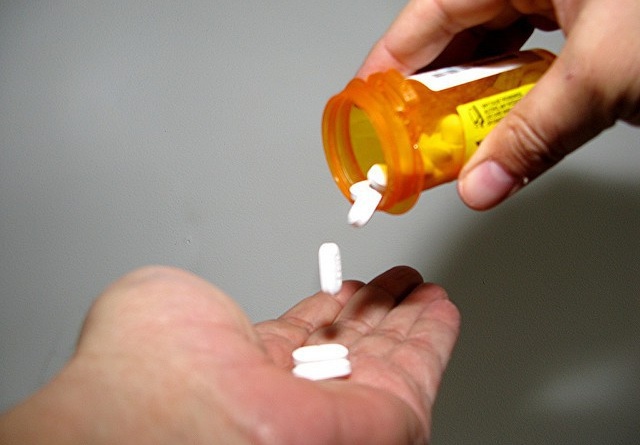Students with depression adapt to the pandemic
PHOTO: Davis High students use selective serotonin reuptake inhibitors to manage depression (Courtesy: Frankie Leon).
By Emma Carney,
BlueDevilHUB.com Staff–
Davis High sophomore Ian Bourne first started showing signs of depression and self-harm in sixth grade. “I appeared very high functioning,” Bourne said. “I got straight A’s but I didn’t have any friends.” In the eighth grade, his mental health declined and Bourne ended up in the emergency room.
The emergency room trip led Bourne to get a prescription for selective serotonin reuptake inhibitors (SSRIs) to treat his depression and unspecified anxiety disorder. Borne’s grades went up, he stopped self-harming, he made new friends, and came out as transgender. Now, Bourne says he’s “doing really great.”
Bourne’s mental health problems came before COVID, but a study published by the Journal of the American Medical Association on Sept. 2 said that the rate of depression in American adults tripled during the COVID-19 pandemic.
However, DHS counselor Catherine Pereira has not noticed an increase in counseling appointments. Nonetheless, Pereira does believe “the need for counseling is greater this year, and definitely in line with the nation.”
Kim Gorgens, professor of neuropsychology at the University of Denver, believes the increase in depression is due to the “loss of routine, loss of resources and social support.” However, teens are at an advantage because they “know how to connect to their peers via technology,” Gorgens said.
Technology is important for students in therapy as well. “For me it was really important that I did [therapy] over a video call,” Bourne said. “I need that face-to-face interaction.”
Bourne began working with his current therapist during the pandemic. He found it difficult to build a relationship with his therapist over Zoom, but said it would probably be more challenging for someone who had never been in therapy before.
“The thing that’s hardest about going to therapy during quarantine is that I’m in my home, ” Bourne said. “I always tell my brother ‘go downstairs, play some video games, put your headphones on.’”
Dr. Sergio Aguilar-Gaxiola, the director of the UC Davis Center for Reducing Health Disparities, says the pandemic is having a “tremendous impact” on families and their relationships. According to Aguilar-Gaxiola, there has been a significant increase in domestic violence and, because children are not going to school, it is harder to identify victims of abuse.
Aguilar-Gaxiola also identifies increased responsibility as a potential stressor, especially for older siblings. Caring for younger siblings is “an extra level of responsibility that teenagers are usually not responsible for,” Aguilar-Gaxiola said. “If they have to be surrogate parents, that’s a lot.”
“I don’t like spending so much time at home with my family,” freshman Juna Brothers said. “It’s kind of overwhelming.”
Brothers was diagnosed with moderate depression in seventh grade. She is currently taking SSRIs to manage her depression.
As a result of the pandemic, Brothers has taken on more household responsibilities. “I do a lot of the cooking and cleaning,” Brothers said. “My mom doesn’t go to the gym so she makes me workout with her, I really really really don’t like it.”
Brothers feels that time away from friends and additional chores have been stressful. However, she appreciates shorter school days and more time to relax.
The pandemic impacted Brothers’s access to medication. “During COVID-19 my mom didn’t want to go to the pharmacy,” Brothers said. “She didn’t feel like it was safe.” Now, Brothers gets her SSRIs in the mail.
Bourne and Brothers both encourage others to seek help for themselves or for friends. “If you feel like you’re not in the right place mentally, then you should 100 percent get help,” Brothers said.
Bourne believes it is important to say something if you are worried about a friend. “It’s so much better to have a friend that’s upset at you than to not have that friend anymore,” Bourne said.
.jpg)
DHS students can contact their counselors at https://dshs.djusd.net/counseling. The National Suicide Prevention Lifeline is 800-237-8255.



